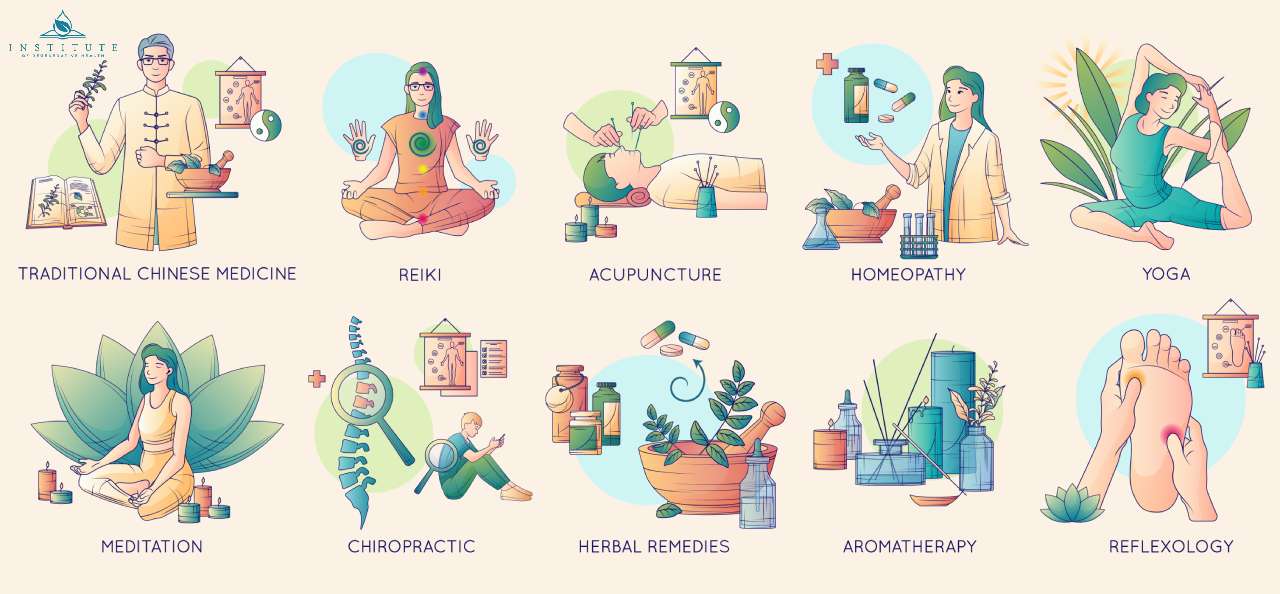How to Become a Holistic Health Practitioner: Step-by-Step Guide
May 21, 2025
Starting a career as a holistic health practitioner can feel overwhelming if you don’t know where to begin. But it doesn’t have to be. This guide breaks it down clearly so you can understand what the role involves, what kind of training is needed, and how you can build a real career in the wellness field.
Holistic health is about supporting the body’s natural ability to heal. Practitioners use non-invasive methods like nutrition, detox strategies, and lifestyle guidance to help people improve their well-being. It’s an ideal path for anyone interested in natural health, whether you're changing careers, expanding an existing practice, or simply trying to help others through your own healing journey.
Let’s walk through the process of how to become a certified holistic health practitioner.
1. Understand the Role
A holistic health practitioner doesn’t treat or diagnose illness. Instead, they focus on identifying the root causes of symptoms and helping clients make informed choices to support their bodies.
Typical areas of focus include:
- Gut health
- Parasite and heavy metal detox
- Hormonal balance
- Lifestyle changes
- Stress and sleep management
- Immune and metabolic health
Clients often come with chronic symptoms that haven’t responded to conventional care. Your role is to educate, guide, and empower, not to replace a doctor.
2. Decide if This Career Is Right for You
This path suits people who are passionate about health and want to work closely with others. You might be a good fit if you:
- Are interested in science-backed natural approaches
- Want a flexible and meaningful career
- Enjoy learning and staying up-to-date with health research
- Are you ready to take on a supportive role in someone’s health journey
Our students include nurses, yoga teachers, health coaches, parents, and professionals transitioning from other industries. What they all share is a commitment to helping others in a way that feels aligned with their values.

3. Choose the Right Certification Program
Education is the foundation of your practice. You want a program that teaches you how to assess a client, understand the body’s systems, and build practical wellness plans. But you also need support beyond the classroom.
Look for a certification that offers:
- A live or guided curriculum
- In-depth training on root-cause healing
- Case studies and real-world applications
- Business tools for client onboarding, pricing, and program delivery
- Support from instructors and mentors
At the Institute of Regenerative Health, our students are guided live through a science-based curriculum and get access to prebuilt wellness programs that can be rebranded and sold. This means you’re not just learning, you’re preparing to launch a practice.
4. Learn the Science Behind Natural Healing
You don’t need a medical degree to do this work, but you do need to understand how the body functions and how to recognize patterns that contribute to poor health.
A well-rounded program should cover:
- Digestive health and the microbiome
- The immune system and inflammation
- The impact of stress, sleep, and toxins
- Hormonal and metabolic health
- Nutrition and nutrient deficiencies
Studies have shown that lifestyle changes, when paired with education, can reduce symptoms of many chronic conditions. According to the National Institutes of Health, integrative approaches that focus on nutrition, stress reduction, and detoxification are gaining more credibility in health care.
5. Get Certified
Certification shows clients that you’ve completed training and have met professional standards. In many places, holistic health practitioners are not regulated by a licensing board, so certification is the most recognized credential in the field.
With certification from a trusted institution, you’ll be able to:
- Start working with private clients
- Add holistic health to your current offerings
- Build a brand that reflects your values
- Provide education-based health guidance within legal and ethical boundaries
Our program at the Institute includes not just education, but also tools to launch your practice confidently. We help you understand what you can and can’t say legally, and how to work safely within scope.
6. Start Practicing and Building a Business
Once you’re certified, the next step is to begin working with clients. This can be part-time or full-time, online or in-person. Many of our graduates start with one-on-one coaching sessions and grow from there.
Here’s what a strong practice setup includes:
- A clear wellness program or offer
- Client intake forms and protocols
- Systems for follow-ups and support
- Marketing tools like a basic website or landing page
- A pricing model that reflects the value you offer
We offer a business-in-a-box approach, where you get access to programs and templates you can start using immediately. That way, you’re not stuck trying to figure it all out after certification.

7. Keep Learning and Growing
The wellness field is always evolving. You’ll want to keep learning through webinars, workshops, or advanced certifications. Staying updated helps you serve clients better and stay competitive.
We encourage our graduates to continue exploring areas like emotional healing, trauma-informed coaching, advanced detox protocols, or lab testing interpretation if they want to expand their skill set.
Real Results from Our Students
Sara, a former marketing professional, joined us while managing her own chronic gut issues. She not only resolved her symptoms but also started coaching others. Within six months, she had a small but steady group of paying clients.
James, a personal trainer, wanted to support his clients beyond the gym. After getting certified, he built a full-service wellness program combining movement, nutrition, and gut health education.
These are just two examples of how our students are turning education into action.
FAQs
Do I need a medical background to become a holistic health practitioner?
No. Most certification programs are designed for people without a medical background. What matters most is your willingness to learn and apply what you’re taught.
How long does certification take?
It varies. Our program is designed to be completed in a few months, depending on your pace. Some students start working with clients before they’ve even finished, using the tools provided during training.
Can I work from home or online?
Yes. Many of our graduates run online practices. With the right tools and support, you can work with clients globally and create a flexible business that fits your lifestyle.
Ready to take the next step?
Explore our Regenerative Health Practitioner Certification Program and get the education, support, and tools you need to start your career in holistic wellness.
Let us help you build a path that’s not only meaningful but sustainable.

